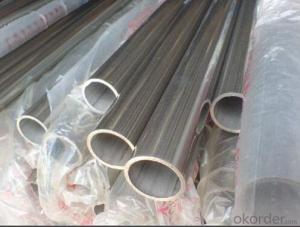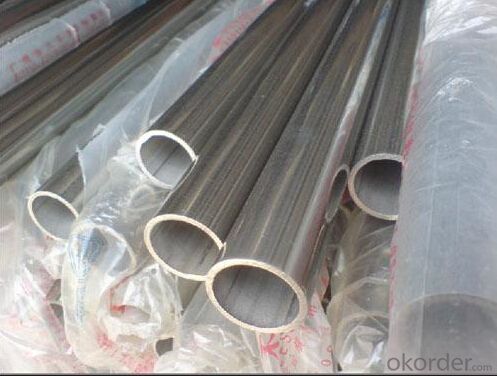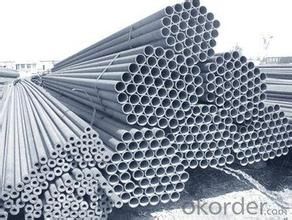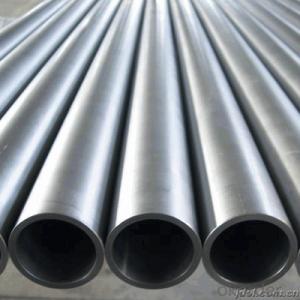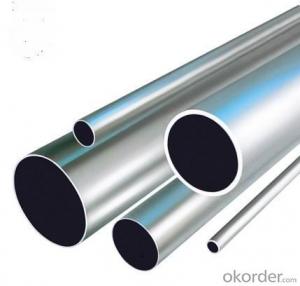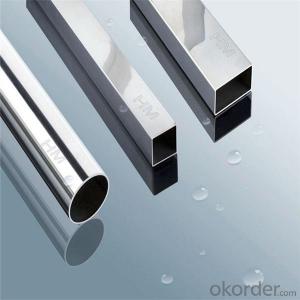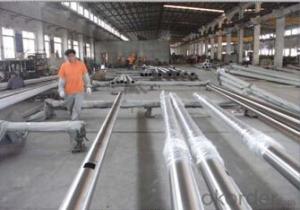Stainless Steel 202 Pipe
- Loading Port:
- China Main Port
- Payment Terms:
- TT or LC
- Min Order Qty:
- 25-35 kg
- Supply Capability:
- -
OKorder Service Pledge
OKorder Financial Service
You Might Also Like
Quick Details
| Standard: | JIS,AISI,ASTM,GB,DIN,CE | Place of Origin: | Guangdong China (Mainland) | Brand Name: | QX |
| Model Number: | 201/202/304/316/316L/430 | Type: | Welded | Steel Grade: | 300 Series |
| Application: | Decoration,construction, upholstery | Certification: | ISO | Welding Line Type: | ERW |
| Thickness: | 0.3mm to 3.0mm | Outer Diameter: | 9.53mm to 159mm | Polish: | Satin,Bright or Mirror |
| Grade: | 201,202,301,304,316,316l,430 ect. | Length: | In gernal 5.8m/6m or as customer request | Process method: | Hot rolled |
| Test: | Squash test, water pressure test,extended test,crystal rot test etc. | Production Standard: | ASTM A554 | Materials: | SUS 304, 201, 316, 316L,430 ect |
| OD tolerance: | + / - 0.15mm | Thickness tolerance: | +/- 10% | Length tolerance: | +/- 10mm |
Packaging & Delivery
| Packaging Detail: | Every tube is sleeved in plastic bag individually, and then several tubes are packed by weaving bag, which is seaworthy. Or 50kg/bundle, 500kg/bundle.We can pack as clients' requirement. |
| Delivery Detail: | 25 - 35 days for a full container. |
Specifications
Stainless Steel Pipe:
1.201,202,301,304,316L,430,etc
2.OD:6mm-159mm
3.Thickness:0.25mm-3.5mm
4.Finish:Mirror,Satin,Hairline
Stainless Steel 202 Pipe Image
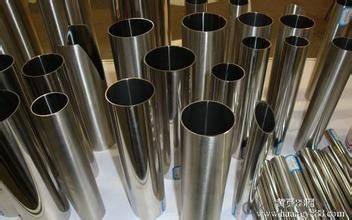
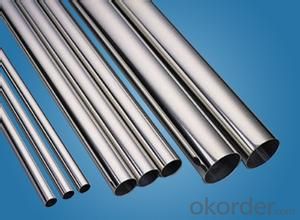
FAQ of Stainless Steel Pipe
①How is the quality of your products?
Our products are manufactured strictly according to national and internaional standard, and we take a test
on every pipe before delivered out. If you want see our quality certifications and all kinds of testing report, please just ask us for it.
Guaranteed: If products’ quality don’t accord to discription as we give or the promise before you place order, we promise 100% refund.
②How about price?
Yes, we are factory and be able to give you lowest price below market one, and we have a policy that “ for saving time and absolutely honest business attitude, we quote as lowest as possible for any customer, and discount can be given according to quantity”,if you like bargain and factory price is not low enough as you think, just don’t waste your time.Please trust the quotation we would give you, it is professional one.
③Why should you chose us?
Chose happens because of quality, then price, We can give you both.Additionally, we can also offer professional products inquiry, products knowledge train(for agents), smooth goods delivery, exellent customer solution proposals.Our service formula: good quality+good price+good service=customer’s trust
SGS test is available, customer inspection before shipping is welcome, third party inspection is no problem.
Any question, pls feel free to contact us !
- Q: How are steel pipes tested for mechanical strength?
- Steel pipes are tested for mechanical strength through various methods such as tensile testing, impact testing, and hardness testing. Tensile testing involves pulling the pipe until it breaks to determine its maximum strength and elasticity. Impact testing measures the ability of the pipe to withstand sudden loads or impacts. Hardness testing determines the pipe's resistance to indentation or scratching, which indirectly reflects its mechanical strength. These tests ensure that steel pipes meet the required standards and can withstand the intended applications.
- Q: Fastener type steel pipe scaffold external parts name
- Even the wall piece the upright rod is connected with the main structure together, available steel tube, fastener or embedded part. Rigid wall, also can be used as a flexible reinforced wall connecting piece of the tie bar. , 5.The base in the form of plug-in and coat type two, inserted a D1 diameter rod diameter than 2mm, diameter D2 rod diameter than 2mm type jacket.
- Q: What are the safety precautions while working with steel pipes?
- Some safety precautions while working with steel pipes include wearing appropriate personal protective equipment such as gloves, safety glasses, and steel-toed boots to prevent injuries. It is important to ensure the work area is clear of any obstacles or tripping hazards. Workers should be trained in proper lifting techniques to prevent strain or back injuries. Additionally, it is crucial to follow proper procedures for handling and storing steel pipes to prevent accidents and maintain a safe working environment.
- Q: Are steel pipes suitable for fire protection systems?
- Yes, steel pipes are suitable for fire protection systems. They are highly durable and have excellent resistance to heat and fire. Steel pipes also have superior strength, making them suitable for carrying water or other fire suppressants at high pressure. Additionally, steel pipes have a long lifespan and are able to withstand different environmental conditions, making them a reliable choice for fire protection systems.
- Q: Can steel pipes be used for conveying natural gas?
- Yes, steel pipes can be used for conveying natural gas. Steel pipes have been widely used in the natural gas industry due to their strength, durability, and ability to withstand high pressure. Additionally, steel pipes are resistant to corrosion and provide a secure and reliable method for transporting natural gas over long distances.
- Q: How are steel pipes used in the telecommunications infrastructure?
- Steel pipes are commonly used in telecommunications infrastructure for the installation of underground cables. These pipes provide protection and support to the cables, ensuring their longevity and efficient functioning. Additionally, steel pipes are used for the construction of telecommunication towers, providing a sturdy framework for antennas and other equipment.
- Q: The difference between carbon and welded steel tubes
- Quality solutionsThe carbon steels we usually refer to include carbon structural steels and carbon tool steelsThe common steel pipe is divided into two kinds: seamless steel pipe and welded steel pipe. The welded pipe of small size is straight welded, and the big size steel pipe is usually spiral welded
- Q: Can steel pipes be used for conveying corrosive substances?
- Steel pipes can be used for conveying corrosive substances, but it is important to choose the right type of steel and consider additional protective measures. Stainless steel pipes, for example, are highly resistant to corrosion and can handle a wide range of corrosive substances. However, it is crucial to consider the specific corrosive properties of the substance being conveyed and the concentration levels. In some cases, additional protective coatings or linings may be necessary to prevent corrosion and ensure the longevity of the steel pipes. Regular maintenance and inspection are also essential to detect and address any signs of corrosion to prevent leaks or failures in the piping system. Overall, steel pipes can be used for conveying corrosive substances, but proper material selection, protective measures, and maintenance are vital to ensure safe and efficient operations.
- Q: Is the seamless steel pipe used in the market hot or cold drawn?
- Small and medium-sized cold drawn and hot-rolled are many, large caliber is hot rolling, cold rolled spot less.
- Q: Can steel pipes be used for chemical storage tanks?
- Steel pipes can be used for chemical storage tanks, but it depends on the specific application and the type of chemicals being stored. Steel is generally a strong and durable material, making it suitable for many industrial applications. However, certain chemicals can react with steel, causing corrosion and potentially compromising the integrity of the tank. In such cases, it is important to use corrosion-resistant coatings or linings on the steel pipes to protect against chemical reactions. Additionally, the design and construction of the tank should adhere to industry standards and regulations to ensure safe storage of chemicals. Therefore, while steel pipes can be used for chemical storage tanks, careful consideration must be given to the type of chemicals being stored and appropriate measures taken to prevent corrosion and ensure safety.
Send your message to us
Stainless Steel 202 Pipe
- Loading Port:
- China Main Port
- Payment Terms:
- TT or LC
- Min Order Qty:
- 25-35 kg
- Supply Capability:
- -
OKorder Service Pledge
OKorder Financial Service
Similar products
Hot products
Hot Searches
Related keywords
